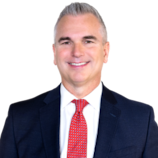Coming home was not easy for Kurt Power.
"I'd wake up in the middle of the night yelling or in cold sweats and have nightmares and my wife would always say 'are you ok, what's going on?' and I'd say I don't want to talk about it” said Power.
A sergeant in the U.S. Army, he received the purple heart after narrowly being killed by a sniper back in 2005.
A bullet through the chest ended his war in Iraq, but the battle at home was just beginning.
"Coming home was horrifying. I never thought I was going to make it home, so then I never thought I was going to have to re-adjust to the civilian world" he said.
Five years ago, Power was approached by a new program called Home Base. It offers free services for veterans to help them deal with the stresses of civilian life. He got involved in a program designed to help to veterans coming home from war that focuses on the family.
"I was scared to talk about the things that none of us ever want to talk about. So, I said to my wife Jessica who is amazing and said would you mind coming with me and she said of course!" Power said.
"It's life-changing for families and couples when they get on the same page," said Dr. Shiri Cohen, a staff psychologist and director of couple’s services at Home Base.
Cohen says family members of veterans are usually the first ones to reach out for help.
"It doesn't require a level of PTSD for military couples and families to benefit from our services," she said.
Home Base recently opened their new center for excellence located in the Charlestown navy yard. The state-of-the-art facility is completely paid for by private funding and offers a variety of programs. Every program through Home Base is free for veterans.
Home Base COO Michael Allard allowed us to tag along while he gave Massachusetts Senator Ed Markey a tour of the new facility.
"We do yoga, we do Tai Chi in here," said Allard, as he brings Senator Markey into one of the recreation rooms.
Allard points out masks that are made by veterans who participate in an art therapy program. The outside of the mask represents how they think the world views them. The inside of the mask is how they see themselves.
"When the family members come in, one of the things the veterans have to do is present the mask to the family member,” Allard said.
Programs like this have helped Kurt Power open up about his experiences in Ramadi, Iraq.
"I'm the last guy who would want to do this and talk about his feelings! Meditates now or does yoga, but it works and it's all part of evolving post-war" said Power.
An evolution that he said wouldn’t possible without the help of his wife Jessica.
"Thanks to the Home Base program, not only do I feel better every day of my life, our marriage is a million times better and I already thought it was perfect,” said Power.
Cox Media Group








